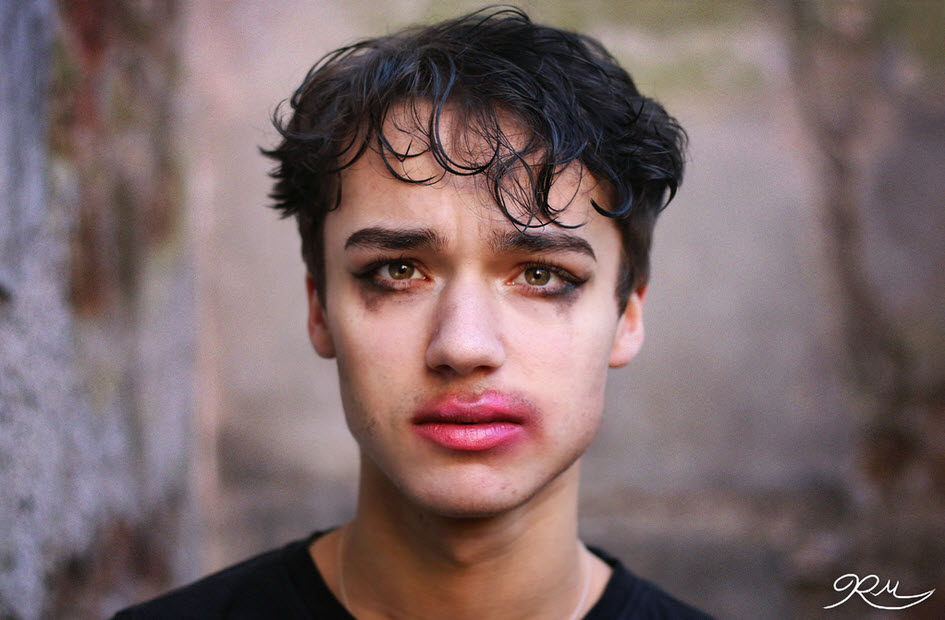THIS WEEK, Vanity Fair gave us a preview of their July 2015 cover, featuring Caitlyn Jenner. In April 2015, she agreed to a 20/20 interview with Diane Sawyer, in which she confirmed the speculations of months of pervasive — and invasive — tabloid coverage about her transition: “I’m a woman.” At the time of the interview, Jenner was still known as “Bruce,” and said she preferred the use of male pronouns and her birth name until she was further along in her transitioning process. Now, two months later, she beams from the glossy magazine cover, asking the world to call her Caitlyn.
Although we must wait until June 9th to read her 22-page Vanity Fair story, Caitlyn Jenner’s dignity and courage are already quite evident. Certainly a generous part of Jenner’s strength comes from the overwhelming support she has received since coming out. Her children and stepchildren have largely been accepting of her transition, though her older children have refused to appear in the upcoming E! reality show about her life after coming out. Jenner’s mother has called her “beautiful,” but is clearly having some difficulty adjusting to using her new name and female pronouns.
The community at-large has shown an outpouring of support for the former Olympian as well. News coverage regarding the Vanity Fair story has been overwhelmingly positive, with few outlets insisting on referring to Jenner as a man. Jenner broke a world record — previously set by Barack Obama — when her new Twitter account reached one million followers in just four hours. Everything, it seems, is coming up roses for Caitlyn Jenner.
Seeing this level of public support for a trans woman is wonderful at a time when trans individuals must fight for dignity and respect against hatemongers who label them “perverts” and “sexual predators.” The general treatment of trans individuals is poor, to say the least. As activist Sophia Banks points out, Jenner’s experience is in no way similar to that of the average trans woman, who is at high risk of being impoverished, homeless, a sex worker, and suicidal.
Actress Laverne Cox acknowledges that both she and Jenner occupy spaces of privilege within the trans community. She emphasizes the importance of using their notoriety to raise awareness of transgender issues:
Most trans folk don’t have the privileges Caitlyn and I now have. It is those trans folk we must continue to lift up, get them access to healthcare, jobs, housing, safe streets, safe schools and homes for our young people. We must lift up the stories of those most at risk, statistically trans people of color who are poor and working class.
For her part, Jenner states that her new show “will focus on ways of lowering the rates of suicide and attempted suicide in the transgender community.”
It’s an important goal. Statistics show that, no matter how encouraging the presence of high-profile trans women like Jenner and Cox may be to young people, their lives are often made unbearable by societal pressures, pervasive and ignorant myths, bullying, and a lack of support. More than 50% of trans individuals will attempt suicide at some point in their lives. Since December 2014, many teens have been shown the overwhelming support in the aftermath of their suicides that they never received in life: Leelah Alcorn, 17; Melonie Rose, 19; Ash Haffner, 16; Blake Brockington, 17; Taylor Alesena, 16. Without people to support them, many trans individuals are often immortalized as the wrong gender in cemeteries and obituaries.
Suicide is only the tip of the iceberg: the ultimate result of a lifetime spent fighting for basic dignity. Trans individuals become homeless after their families abandon them, and are often turned away or treated hostilely at shelters. They face false accusations that they are only claiming to be transgender, with the perverted aim of justifying and making the crime of raping trans women and girls easier. Trans women often turn to sex work because no one will hire them and, after they are arrested, they are at an extremely high risk of facing brutalization when they’re inevitably incarcerated with males.
We can’t change the world on our own, and we can’t change everyone’s mind, but we can each do our part to make the world around us a more open and affirming place for transgender people, both out and closeted. The following are just a few simple strategies you can use every day.
Don’t assume everyone is cisgender. Try referring to people with gender-neutral nouns and pronouns until you know how they identify: e.g. “Plaid Bowtie” instead of “that man over there.”
Correct misgendering pronouns. When you hear someone talking about “Bruce” Jenner and “his” transformation, gently point out that, because Jenner has asked us to call her Caitlyn and refer to her as female, we should respect her wishes.
Don’t make trans jokes. Words like “tranny” are harmful and hurtful, and calling someone a “trap” just isn’t cool.
Support pro-LGBTQ legislation. This is a no-brainer, because a woman shouldn’t have to decide between risking arrest and assault whenever she has to pee.

















